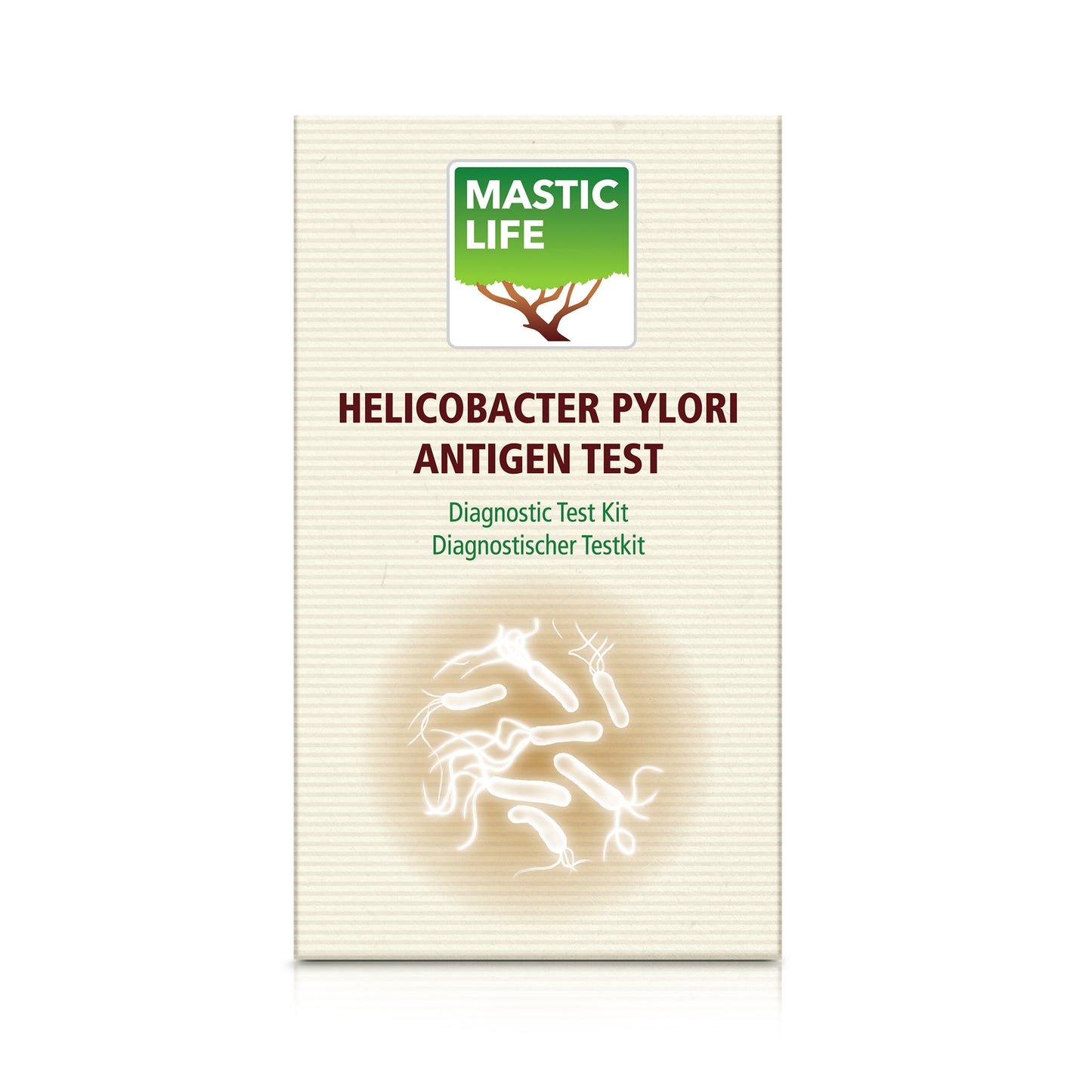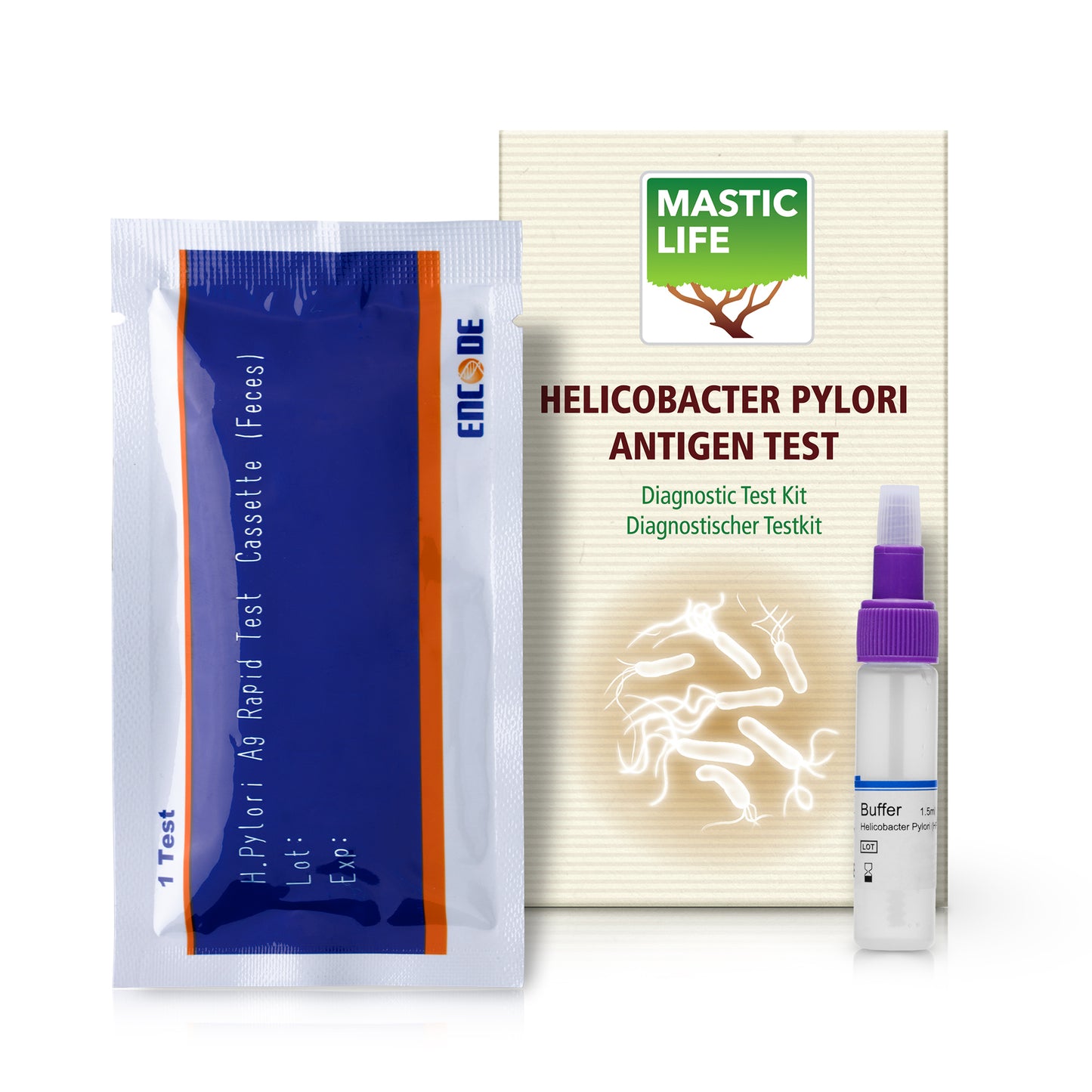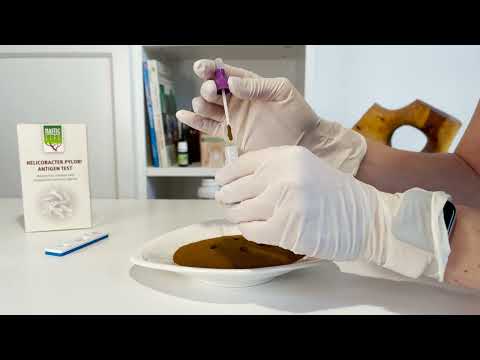Masticlife
Helicobacter Pylori Stool Test
Helicobacter Pylori Stool Test
Couldn't load pickup availability
Our Helicobacter Pylori Test is proven to provide over 95% accuracy in detecting the presence of Helicobacter Pylori in the gut. This rapid and reliable home test provides results in just 10 minutes, making it a convenient and reliable method for diagnosing H. Pylori infection.
Helicobacter Pylori Stool Test
With our home stool test, you can quickly and easily detect the presence of Helicobacter pylori. Helicobacter pylori is a bacterium that is commonly found in the stomach and can cause stomach problems, including gastritis and stomach ulcers. With this reliable test, you can get results quickly without having to visit a doctor or laboratory.
Product Features:
-
Fast and accurate: results within 10-15 minutes, with high accuracy of detecting the presence of Helicobacter yylori.
-
Simple and painless test that you can perform in the comfort of your own home.
-
Non-invasive: A stool test that does not require blood sampling or invasive procedures.
-
Prevention of serious health problems: Early detection of Helicobacter pylori helps prevent serious stomach complications.
- Easy to follow instructions that guide you step by step through the entire test.
When should you use the Helicobacter pylori test?
If you suffer from any of the following symptoms, you should consider a Helicobacter pylori test:
- Recurrent abdominal pain, especially in the stomach area.
- Heartburn or an uncomfortable feeling of fullness after eating.
- Nausea or vomiting.
- Loss of appetite and unexplained weight loss.
- Frequent flatulence or indigestion.
What is in the package?
Helicobacter pylori antigen test, disposable plastic pipette, solvent bottle, silicone gel bag.
Specimen collection and procedure
- Collect a random sample of feces in a clean dry container. Open the coloredcap of the sample container (included). Be careful not to spill or spattersolution from container.
- Unscrew and remove the dilution tube applicator. Collect random sample by using the applicator stick. Take sample from various surfaces of the feces specimen from 3-4 points.
- Carefully remove any excess stool that remains in the groove at the end of the sampling stick!
- Place the applicator back into the tube and screw the cap tightly.
- Shake the specimen collection tube vigorously to mix the specimen and the extraction buffer.
- Hold the sample container with the colored cap facing up and clean the top of the cap thoroughly.
- After breaking off the tip of the dilution tube or unscrewing it (depending on the test version), the container functions as a dropper. Hold the tube vertically and dispense 3-4 drops of solution into the round specimen well of the test device.
- Evaluate the result after 5 - 10 minutes. (After 15 minutes the test is invalid, do not evaluate it.)
Interpretation of results
- A colored band appears in the control band region C means the test result is negative.
- A colored band appears in the control band region C and another colored band appears in the T band region mean the test result is positive.
- No control band appear in the results window within 20 minutes, the result is invalid. There has been an error in the procedure or the test kit has been damaged and the test must be repeated.
Limitations of the test
- The H. Pylori Ag Rapid Test Device (Feces) will only indicate the presence of H. Pylori antigens in the specimen and should not be used as the sole criteria for the diagnosis of H. Pylori infection. As with all diagnostic tests, all results must be interpreted together with other clinical information available to the physician.
- If the test result is negative,it does not mean that Helicobacter Pylori is not present in the organism.An additional testing using other clinical methods is necessary.
- The test provides the most reliable results at room temperature.
- The exact result depends on how well you follow the prescribed test procedure.
- If you place more than 4-5 drops of sample in the test area, you will get an incorrect result.
Visit our youtube channel and watch the video describing the testing: Home testing for h. pylori (stool test)





